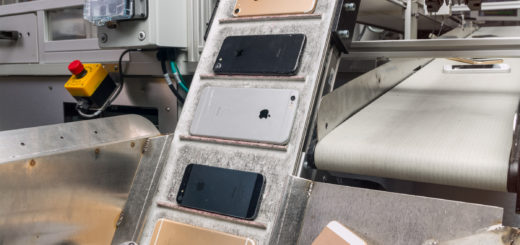7+ things Tim Cook said at Apple’s shareholder meeting

People arrive at Apple’s iPhone event
Shareholders got to visit Apple Park and the Steve Jobs Theater on February 26, 2020 for Apple’s annual shareholder meeting. What did they learn?
What didn’t happen?
As is now customary at Apple shareholder events, not a single shareholder proposal Apple management opposed got passed. And, of course, what is also customary at any Apple event is that the company didn’t tell us a great deal beyond what it wanted to say. Though Apple’s CEO, Tim Cook, did promise that all the (many?) things the company is working on will be “really cool” — so keep those Crazy Apple Rumors moving, I suppose.
So, moving on, what did Cook tell us?
1. Apple TV+ deal is ‘absolutely crazy’
CEO Tim Cook described the free for a year Apple TV+ offer as crazy. “It’s absolutely crazy that we did this, but we did do it,” he said. He also said the service is “about original programming” when asked why it didn’t purchase Friends. (Which is a deeply dated show by now, really, is it not?)
2. Coronavirus is ‘challenging’
Stressing his company is focused on the welfare of its employees and partners, Cook admitted that the fast-developing Coronavirus is “a challenge” for the company. It’s a challenge for everyone, particularly the elderly and vulnerable.
Sitting 3 rows in front of me at the #SteveJobs theater is board member @algore pic.twitter.com/TkyYLLCob3
— Paul W Sas (@hormetic) February 26, 2020
3. On the environment — openly focused on closed loop
Cook chatted about Apple’s desire to build a closed loop manufacturing process. In the end, he hopes the company will be able to make its products “without taking anything from the Earth,” he said. “We’re going to find a way to do it,” he added.
4. On back doors — bad guys use them too
Apple obeys the law in any country it does business in. When it comes to the demand for government to install backdoors into its devices, Apple remains resolute. “You can never have a back door just for the good guys,” said Cook. “You put a backdoor in your house and anybody can come in. A phone is the same way.”
He’s completely correct.
5. On health — prevention beats cure
Cook spoke a little on Apple’s moves in digital health, saying, “The big idea is to empower people to own their health,” including health data.
In addition to the @Apple India store opening news, @tim_cook spoke about the company making decisions not purely for ROI. "If you're a shareholder that believes we should only do things with an ROI, then you're in the wrong stock." $AAPL https://t.co/Ug3DPUX0A7
— Abrar Al-Heeti (@alheeti_3) February 26, 2020
6. On the future of the iPad — we’re working on it
Cook didn’t say this, instead Craig Federighi simply promised that the company intends to “keep working on” iPadOS, which as we all know makes iPads incredibly productive devices.
7. On Apple in India – retail store for 2021
Cook also confirmed previously reported plans to open an online store in India in 2020 with the intention to open the first physical retail store in 2021. He confirmed that the company had had to work to get approval for the project, as India’s government was pushing for it to work with local partners. “We like to do things our way,” he said.
Apple has paid out $155Billion to App Store developers
Averaged all the way back to the launch in ‘07, it’d still be $10B+/year #Wearables would be bigger than Marriott after just 5 years— Paul W Sas (@hormetic) February 26, 2020
8. Apple’s economic contribution
Average it out and Apple has paid developers $10 billion each year since the App Store launched.
More information at Reuters.
Up next
What’s really significant about all these statements is the extent to which they illustrate the global nature of the company.
Consider how far it has come since a similar meeting in 1999 when then CEO, Steve Jobs said he would not discuss unannounced products. “It’s like your parents arranging a marriage for you,” he said. “You’ll get to meet the bride later this year.”
Of course, he fielded questions about new notebooks (and introduced iBook a few months later) and said the company wasn’t working on some form of Palm Pilot gadget.
Which it wasn’t. At that time.
Though iPhone came later.
If you parse those conversations, it seems pretty clear that we’ve moved from being a product-obsessed culture into becoming one that’s increasingly concerned with bigger picture problems, like human rights, surveillance, crime, disease, climate change, and health.
That’s progress, I suppose.




